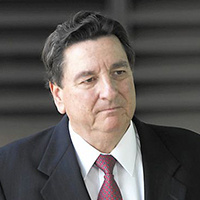 Martins Creek Criminal Lawyers, Pennsylvania
Martins Creek Criminal Lawyers, Pennsylvania
Sponsored Law Firm
-
 x
x

Click For More Info:
-
Ciccarelli Law Offices
Numerous Office Locations Available» view mapCriminal Defense Success Is Our Mission
You gain the resources of a Team with 100 years of combined experience fighting for their clients throughout Pennsylvania.
888-240-0896
Sponsored Lawyers
1-4 of 4 matches
Accident & Injury, Divorce & Family Law, Estate, Criminal, Business
When you've been injured in an accident that was caused by another's negligence or carelessness, you want to do everything possible to make sure your financial future is safe from outrageous medical bills or lost wages. Similarly, you want to plan your estate to ensure your property, assets, and bank accounts are protected once you pass away. Attorney Nick Sabatine has worked for more than four decades dedicating his life to helping his clients protect what matters most to them. If you need an attorney in Wind Gap, Pennsylvania, that will take your case as seriously as he would his own, turn to Nick.
(more)DUI-DWI, Criminal, Felony, Traffic, Misdemeanor
Paul M. Aaroe, II, Esquire. Over 30 years of experience. Personal and professional services. Son of Superior Court Judge Paul Aaroe. Dedicated to Honesty, integrety and knowledge. I can help you. Known as the DUI GUY by the courts, Attorney’s and clients, he knows the law. Call me NOW toll free - 1(877)-726-5529
(more)


 Lee Ciccarelli West Chester, PA
Lee Ciccarelli West Chester, PA AboutCiccarelli Law Offices
AboutCiccarelli Law Offices Practice AreasSpecializations
Practice AreasSpecializations


